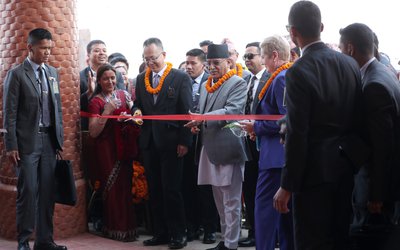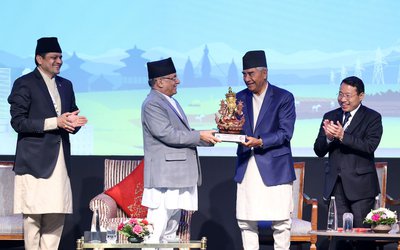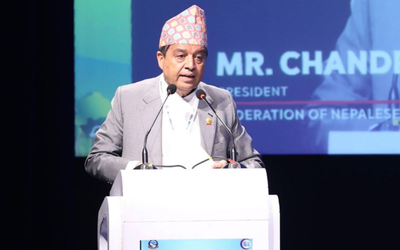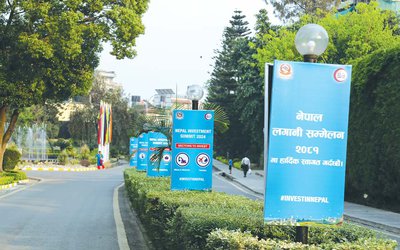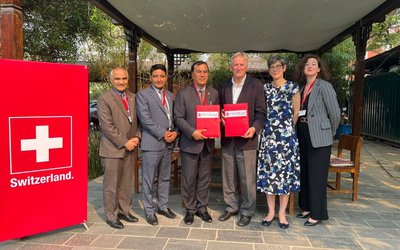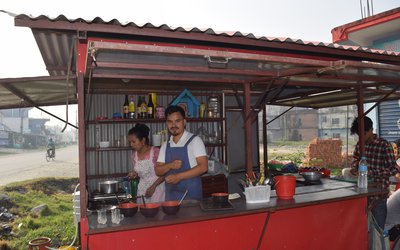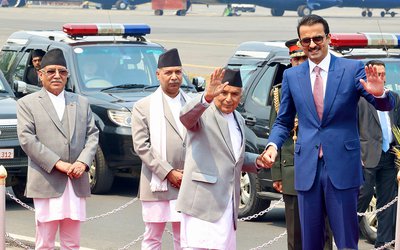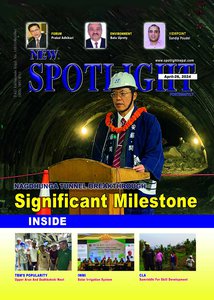The Asian Development Bank (ADB) has approved a new Country Partnership Strategy with Nepal that will anchor ADB assistance to the country over the next five years.
ADB will extend long-term public and private sector finance for capital investment in the areas of transport, energy, water, and other basic public services such as education and skills development; investments that will ensure poverty reduction, as well as inclusive and sustainable growth. This funding is expected to be just under $1.5 billion over the next five years. ADB expects to raise double this amount from other partners from both the private and public sectors.
“The Government and ADB worked very closely together to define a strategic framework that will allow ADB and others to join up in funding the type of investments that can transform Nepal. The strategic work was done in close consultation with key public agencies and private enterprises, as well as with civil society and other development partners. What we now need is to convert this into projects that ensure value for money and deliver development effectiveness,” said Juan Miranda, Director General of ADB’s South Asia Department.
Nepal, which will hold constituent assembly elections next month following a period of political transition after the end of armed conflict in 2006, has great potential to scale up hydropower development, tourism, and agriculture, and to benefit from its strategic location between the People’s Republic of China and India. However, impediments such as critical power shortages, poor connectivity and water supply, and weaknesses in its human capital base, investment, and governance are undermining that potential.
ADB’s five-year strategy will tackle these critical constraints through high priority energy sector investments to strengthen domestic energy security and promote exports through public-private partnerships. Integrating Nepal with the regional and world economy by expanding its airports and transboundary road networks and modernizing customs will also be a focus of ADB’s assistance.
Improving urban infrastructure such as water supply and sanitation in centers such as Kathmandu is another critical activity. ADB will also help with irrigation and watershed improvement to boost productivity and commercialization. Meanwhile, ADB’s education program will target schools, higher education, and vocational and technical skills training.
According to a press release issued by Nepal Mission, Asian Development Bank, the new strategy also places significant focus on governance, financial management, climate change, reforms for private sector investment and sustainability, institutional development and better project implementation performance but will have the flexibility to respond to emerging needs in the business environment during the political transition.
ADB, based in Manila, is dedicated to reducing poverty in Asia and the Pacific through inclusive economic growth, environmentally sustainable growth and regional integration. Established in 1966, it is owned by 67 members – 48 from the region. In 2012, ADB assistance totaled $21.6 billion, including cofinancing of $8.3 billion.
- QATAR AMIR’S STATE VISIT: Five Agreements
- Apr 28, 2024
- TANAHU HYDROPOWER PROEJCT: A Significant Achievement
- Apr 15, 2024
- AMBASSADOR HANAN GODAR: Sharing Pain With A Nepali Family
- Mar 30, 2024
- VISIT OF KfW AND EIB TO NEPAL : Mission Matters
- Mar 25, 2024
- NEPAL BRITAIN SOCIETY: Pratima Pande's Leadership
- Mar 24, 2024

